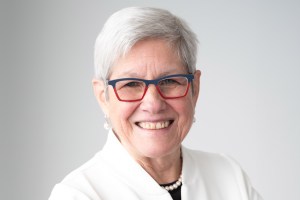Time’s “Ten Ideas That Will Change the World” features HSPH faculty research
The concept of the “demographic dividend” pioneered by Harvard School of Public Health faculty member David Bloom and colleagues is featured in Time magazine’s “Ten Ideas That Will Change the World,” published March 17.
Bloom, Clarence James Gamble Professor of Economics and Demography and chair of the Department of Global Health and Population, and colleagues identified more than a decade ago the “demographic dividend” or “demographic transition” that occurs as countries transition from high rates of fertility and mortality — women having lots of children, many of whom die young — to low birthrates and longer life expectancies.
In a country where this transition is taking place – thanks to improvements in health and other forces — a bulge generation develops that, under the right circumstances, can fuel a strong economic transition as well. Under the wrong circumstances, it can lead to civil upheaval.
“At the start of the demographic transition,” Time notes, “women still have lots of children, but many more of those children survive into adulthood and old age. Only after a while do birthrates decline. And between those two moments not only do populations increase, but the average age of people also drops. You get a youth bulge.”
A youth bulge can be a problem, if that growing generation of young people has limited education and economic opportunities, which in turn can breed unrest. But as Bloom’s research has suggested, many economies in East Asia in the 1980s and 1990s experienced significant growth that could be attributed to the demographic dividend, because educational, social, and government policies were in place to take advantage of the bulge generation’s numbers and potential economic productivity.




